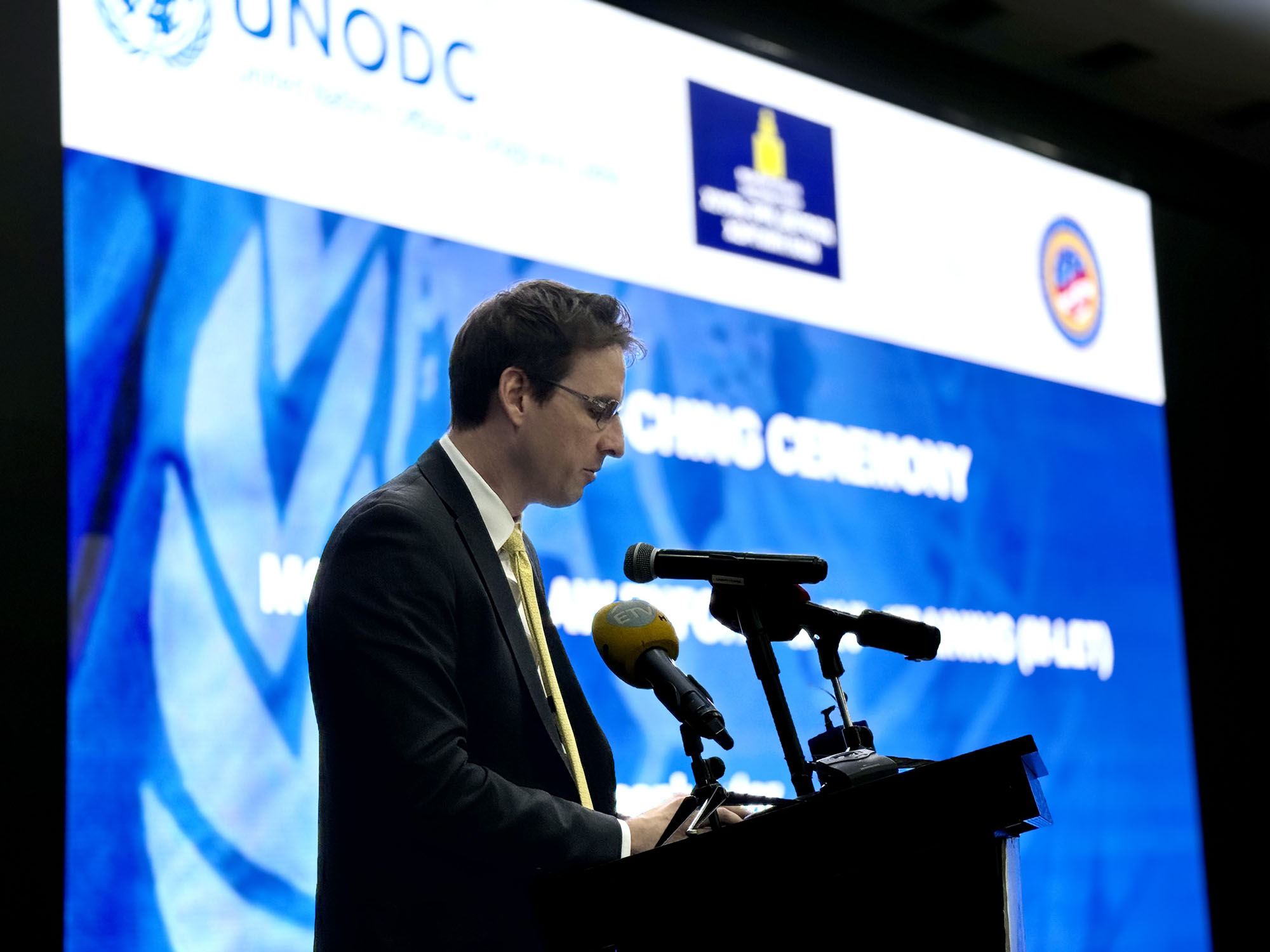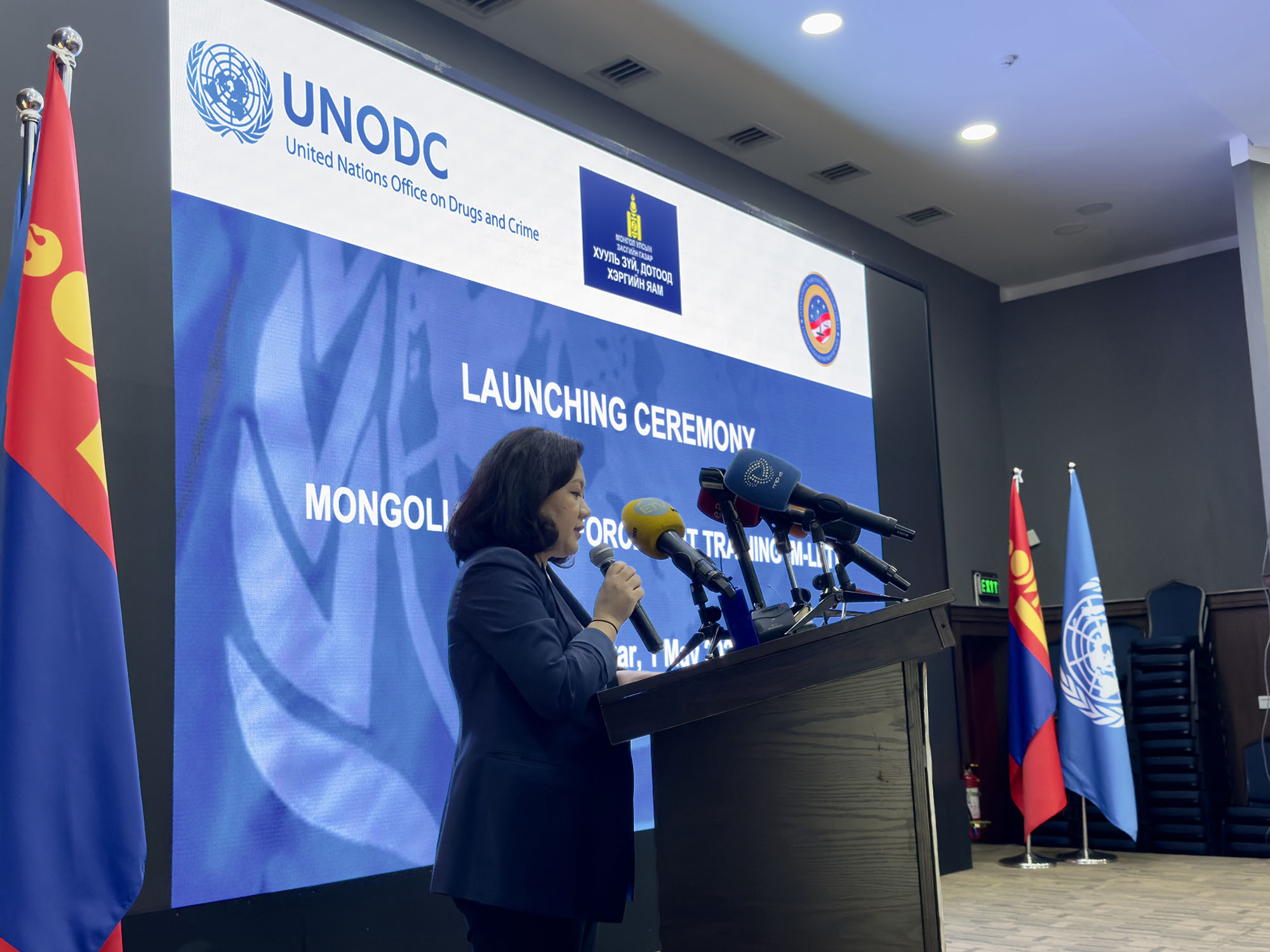
Ulaanbaatar (Mongolia), 21 May 2024 — In a bid to enhance Mongolia’s resilience in countering transnational organized crime, the UN Office on Drugs and Crime and the government have jointly launched an initiative this month to strengthen the country’s law enforcement capabilities. The two-year Mongolia-Law Enforcement Training (M-LET) initiative will build capacities among law enforcement and specialized anti-corruption training institutions in the country to counter emerging threats such as drug trafficking, cyber-enabled crimes, and corruption.

“The project aims to support Mongolia’s criminal justice and law enforcement services to better nourish their most valuable resource — the talent, expertise and integrity of their staff,” said Benedikt Hofmann, Deputy Regional Representative of the United Nations Office on Drugs and Crime in Southeast Asia and the Pacific, during the launch in Ulaanbaatar. “A major focus will be on strengthening integrity and building institutional resilience to corruption. This will […] directly support the Government’s ambitions to strengthen governance and the rule of law as part of Mongolia’s broader socioeconomic development.”
A key aspect of the M-LET initiative is the empowerment of trainers through more specialized and standardized training curricula. In the long term, trained officials within Mongolia’s Ministry of Justice and Home Affairs, the University of Internal Affairs, the Independent Authority against Corruption, and the National Police Agency, among others, will themselves train future law enforcement officers.
“This is a critical project to prepare future generations of law enforcement in combating corruption and other crimes,” said Solongoo Bayarsaikhan, Deputy Minister of Justice and Home Affairs in Mongolia.

M-LET will also expand international cooperation and exchange mechanisms with agencies outside Mongolia.
“Mongolia is not alone in the challenges it faces to its security, governance and the rule of law — including corruption, illicit drug use, money laundering, cybercrime and others. All countries face this kind of challenges to varying degrees. This project is part of Mongolia’s step in the right direction to better address them,” said Duc Long Nguyen, UNODC Crime Prevention and Criminal Justice Officer in Mongolia.
The launch of M-LET means that UNODC is part of a growing UN partnership with Mongolia, with the establishment of a new UNODC office in Ulaanbaatar. During the event, UNODC expressed its readiness to expand support to Mongolia’s Ministry of Justice and Home Affairs and the relevant specialized institutions.
“We are grateful that there will be an established presence of UNODC in Ulaanbaatar to share continued expertise and cooperation and improve the capacity of law enforcement to combat corruption and crime,” Bayarsaikhan said.